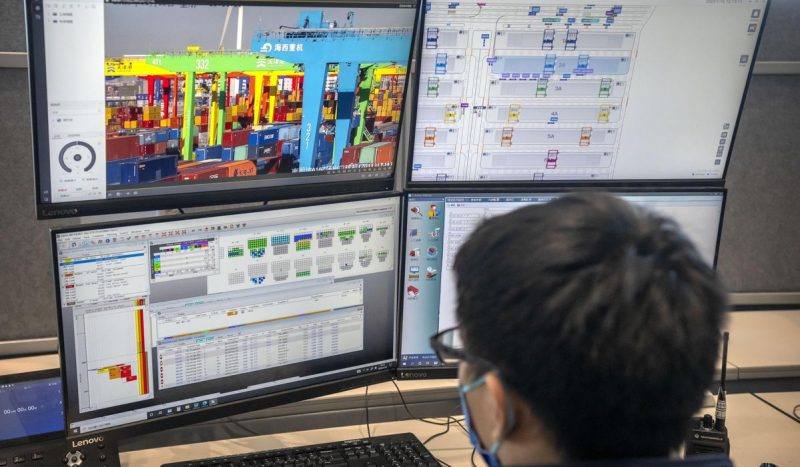The Eastern Institute of Advanced Study and China’s Pursuit of Advanced U.S. Technology
China is making substantial investments to establish the Eastern Institute of Advanced Study (EIAS) in Ningbo, China and recruit top U.S. scientists to acquire advanced American technology, especially in the field of semiconductors. The EIAS is planned as a precursor to the Eastern Institute of Technology (EIT), and has already hired some of the most experienced scientists from the United States, offering them significant financial incentives.
- China’s significant investment in the Eastern Institute of Advanced Study (EIAS) in Ningbo, China reflects a focus on acquiring advanced U.S. technology, particularly in the field of semiconductors.
- EIAS aims to hire top U.S. scientists and researchers, offering them substantial financial incentives and other lucrative benefits to gain access to cutting-edge American technology.
The ‘Kunpeng Plan’ and Strategic Talent Recruitment
The talent recruitment effort led by EIAS is dubbed the “Kunpeng Plan,” signifying its importance in China’s strategy to address U.S. export curbs on advanced microchips. In addition to attracting Nobel Prize-level specialists, EIAS intends to obtain advanced American technology in areas such as semiconductors, artificial intelligence, batteries, and advanced computing.
- The “Kunpeng Plan” is a crucial component of China’s response to U.S. restrictions on the sale of advanced microchips, with the aim of acquiring advanced U.S. technology in various key sectors.
- EIAS’s strategic recruitment effort targets top U.S. technology specialists and aims to gain access to cutting-edge technology, particularly in semiconductors, through the Kunpeng Plan.
High Pay and Incentives for Technology Experts
EIAS is offering high salaries and other incentives to attract 200 technology experts over the next five years, aiming to recruit individuals with a Nobel Prize, Fields Medal, or other prestigious international awards.
- EIAS is offering high salaries and lucrative incentives to attract top technology experts, including renowned scientists from leading technology companies in several western countries.
- To qualify for the recruitment program, individuals must have significant experience in renowned universities and scientific research centers, and commit to working in Zhejiang province, China for over five years.
Strategic Acquisition of U.S. Technology and Talent
China’s increased investment in scientific and technological development poses a significant challenge to U.S. global leadership in these areas. EIAS’s recruitment and technology development program in Ningbo signals an escalation of global technological rivalry, emphasizing China’s concerted effort to pivot the epicenter of technological innovation eastward.
- China’s technology ambitions, embodied in initiatives such as EIAS and the Kunpeng Plan, demonstrate a concerted effort to pivot the epicenter of technological innovation eastward, challenging the long-standing U.S. global leadership in these areas.
- The strategic acquisition of technology companies further highlights the Ningbo program’s aggressive strategy in China’s technology development efforts.
Concerns and Congressional Inquiries
Congress has raised concerns about the security of research funding at U.S. universities, particularly related to foreign talent recruitment. A letter to the director of the National Science Foundation highlighted systematic attempts to exploit, degrade, and misappropriate the open system of science, underscoring the need to defend American research to maintain scientific competitiveness and safeguard national security.
- Congress has expressed concerns about the security of research funding at U.S. universities and the potential exploitation of the open system of science, emphasizing the need to defend American research and scientific competitiveness.
- Systematic attempts to exploit, degrade, and misappropriate the open system of science raise concerns about the security of U.S. research and the need to safeguard national security.
Source: Based on an investigative report by The Science Spotlight








